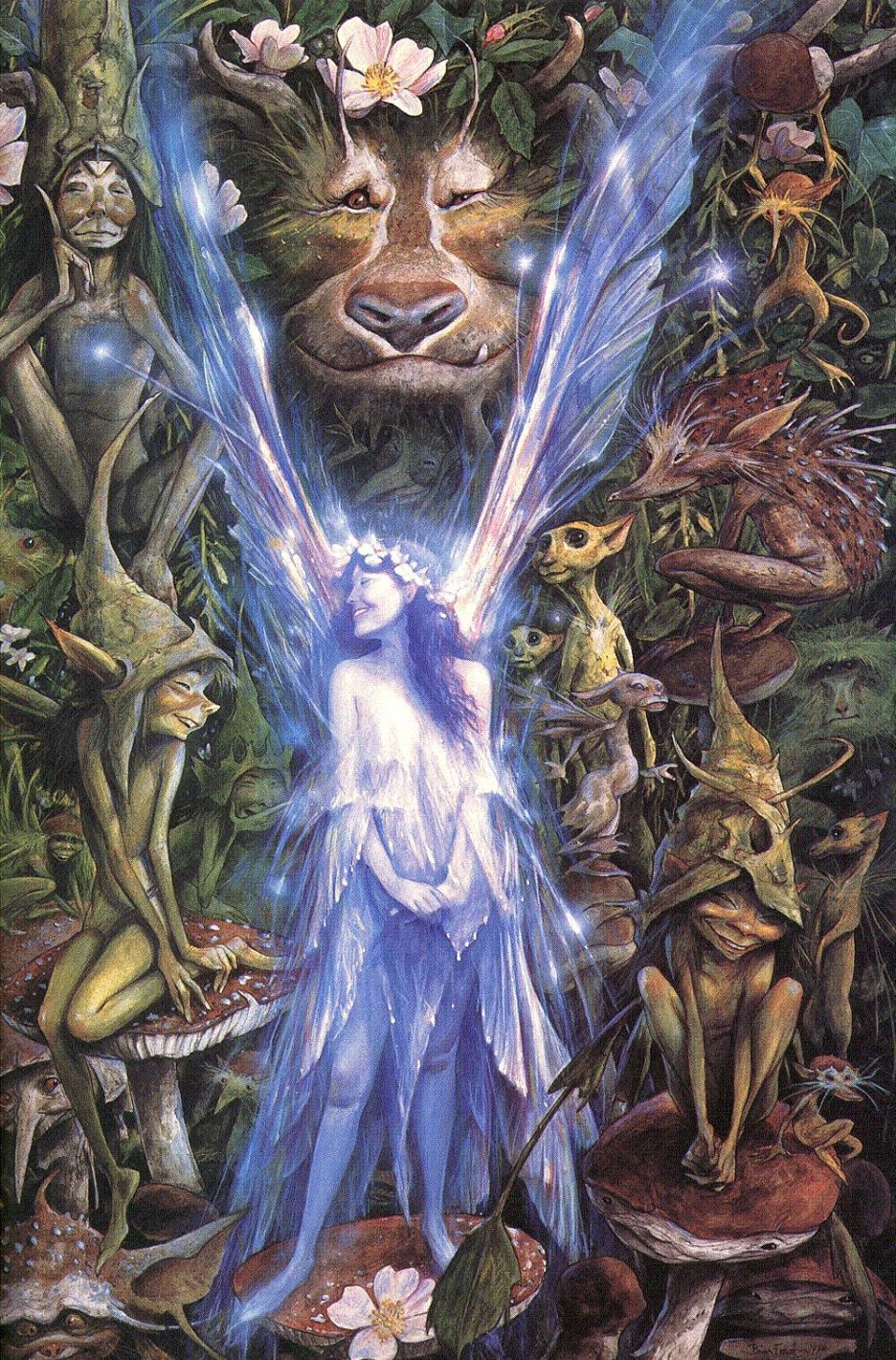
My aunt’s name—Fay—had to do with illusions or enchantments, bewilderings of the mind in which men saw an other world behind or under “reality,” and at the same time it meant the enchanters themselves, the folk who lived under the Hill. Fate, faith, feign, and fair, we find, following the winding associations of fay, fey, and fairy, in the Oxford English Dictionary, are closely related. From many roots, words gathered into one stem of meaning, confused into a collective suggestion. There is fay, too, from old Teutonic *fôgjan, to join, to fix. In the American of the nineteenth century the word referred to the fit of a garment: “Your coat fays well,” the O.E.D. gives us. The casting of the image is high fairy, phanopoeia; but the image itself, as Pound conceived it to be, a nexus—“an intellectual and emotional complex in an instant of time,” he wrote in “A Stray Document,” “which gives that sense of sudden liberation; that sense of freedom from time limits and space limits; that sense of sudden growth”—the image itself is fay, at once an apparition and a joining of two into one.
— Robert Duncan, The HD Book, p. 125

Leave a Reply